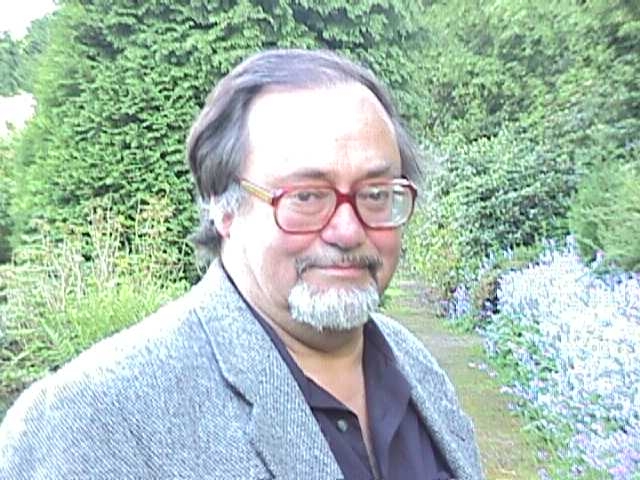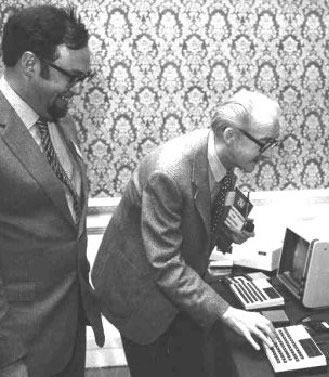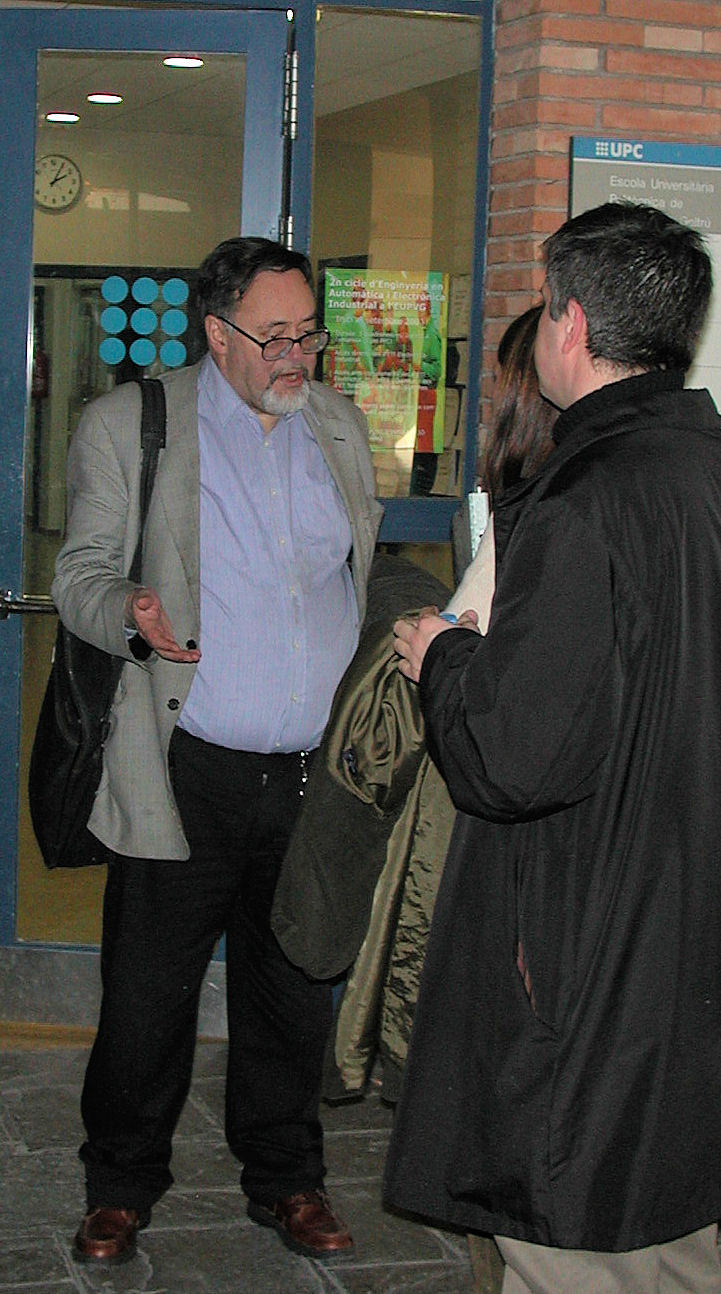Memories of Tim Johns
Tim Johns (1936-2009)

Tim is a man who has been important in my life, always as a mentor, a guide, one who has gone before, one who can share ideas with enthusiasm, humour and usually a plate of good food.
I first met him some time in the 1970s, probably autumn 1975 -- he had been indicated by the British Council as someone who would know about ESP as I was just about to go off to do a job involving ESP. I went up to Birmingham and met Tim in what I now think of as a relatively tidy office. Tim was very kind in pointing useful things out and gave me useful tips but that was more or less it. A very few years later, though, we were to meet again in the context of work I was now doing for the Brazilian ESP Project -- Tim had been sent out to tell us about ESP-related reading comprehension in a seminar in Natal, Rio Grande do Norte, and I well remember his description of the matrix text and how he had negotiated its meaning with the author, a world expert in forms of government, and they had jointly perceived how difficult the text structure was for Tim's EAP students and how that could be rectified. On the Saturday, we also went off to a kind of beach rest house for staff of the Federal University there, where we were plied with feijoada. Tim outdid us all despite the heat, with manful courage.
I was interested in possibly learning about computers – merely as a hobby you understand! – and Tim was already, in the very early 1980s, in on the topic, with his customary energy and enthusiasm. Accordingly, Tim advised me to buy a "Newbrain" – a kind of microcomputer that he was impressed with, and I managed to get one in October 1982. There was no software available and I was in Brazil, so it was either leave it in the cupboard or else learn to program it! That led to a hobby of much struggle with hardware and lots of guessing about software, with no real support – the Internet didn't yet exist and I had access to no useful books.
In 1983 or 1984 Tim came to São Paulo again for a Summer Institute. He and Malcolm & Carmen, Nell & I and even Mike Potter in the maid's room, we all shared the flat that the Catholic University owned (situated in the street of the Immaculate Conception and with a porter whose surname was Bishop). Tim was very keen on Chinese food and so one evening there was a factory in operation with extensive planning, purchasing, chopping up, stir-frying: another of Tim's enthusiastic skills.
A couple of years later he came by again, this time he stayed with us in our flat in São Paulo. He had been working with staff at the Federal University of the other Rio Grande (do Sul) I think or maybe it was Santa Maria, but anyway he had not only imparted his knowledge of CALL, of data-driven learning, the phrase we all owe to him, but also copies of his concordancing software. Here is a copy of his most important data-driven learning paper. (He had also got hooked on the current soap opera at the time, Que Rei Sou Eu, which was a politically motivated comedy. We had to stop everything for Tim to see the TV: Tim had picked up the language well enough to get well and truly hooked and he got us both hooked too. We took Tim to a Spanish restaurant and I well remember his sheer delight at the calamares en su tinta which he ordered and introduced me to that day.)
He enlisted me to supply what we now call support and maintenance. I am pretty sure I failed rather miserably in that. The software was called MicroConcord and Oxford University Press were so interested that they had it advertised in their catalogue. It worked, but it was not quite ready. Soon after, I decided to play around with my own implementation. I had not really understood Tim's well enough to give the support needed. I sent Tim a copy of what I was doing, just for his information, as I thought he'd like to see an alternative implementation strategy. This eventually grew to become Johns and Scott MicroConcord, 1993, published by OUP.
Subsequently we have met fairly often, by no means often enough, in conferences and at events connected to language teaching and computer processing of language. Tim retired from the University of Birmingham when he reached 65 and had to (he really did not want to!) and his life took on other aspects such as trumbling and cruises and expertise on Arthur Ransome's life and works. Tim was in many ways a very private man. He would tell you about his interests if asked – he was enormously knowledgeable about jazz, for example – but he never pushed himself forward. He was a man of great enthusiasm. Eugene Winter said Tim was the best linguist he knew, and that is no mean feat. You can see it in his Kibbitzers, which are still there on the Birmingham website and I hope will remain there. I chiefly know Tim as a really clear and innovative thinker in the computer processing of text. He once gave me a book on algorithms and I've treasured it ever since anyway but especially now.
He was brilliant. We will miss him.
Mike Scott
This photo, kindly supplied by John Higgins, is of Tim in 1982 or 83 watching Randolph Quirk try out an early CALL program, "Two Sticks", on the Newbrain microcomputer.

